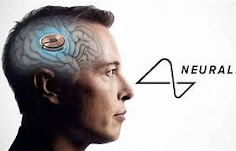1. The Sanctity of the Human Body
From a Christian standpoint, the human body is viewed as a sacred creation, designed in the image of God (Genesis 1:27). Neuralink’s goal of interfacing the brain with machines raises the question of whether altering or augmenting the brain in such a profound way is in alignment with God's design. Christians may be concerned that tampering with the brain, a central part of human identity and consciousness, could be seen as an act of hubris or disrespect toward the Creator's original plan.
While modern medicine and technology have made strides in treating diseases and disabilities, Christians might wonder if the pursuit of human enhancement—beyond restoring normal function—crosses ethical lines, straying into the realm of "playing God." There may be concern that such advancements could disrupt the natural order intended by God, leading to unintended spiritual and moral consequences.
2. Human Dignity and Autonomy
Another ethical concern is the preservation of human dignity and autonomy. Neuralink’s technology could potentially allow for the control of human thoughts, emotions, or actions through external devices, raising the question of whether it could erode an individual’s autonomy. Christianity teaches that humans are free agents, endowed with free will to choose their actions (Deuteronomy 30:19). If BMIs like those Neuralink is developing can influence a person’s decisions or behaviors, it could challenge the fundamental Christian understanding of free will and human dignity.
There is also the potential for societal pressures to use such technology. For instance, in a world where cognitive enhancement is available, individuals may feel compelled to use these technologies to keep up with others, leading to a loss of personal freedom and an increased sense of inequality.
3. The Potential for Exploitation
Neuralink's technology has the potential to benefit those with neurological disorders, such as paralysis or Alzheimer's disease, offering hope for healing and improved quality of life. However, from a Christian perspective, there may be concerns about the potential for exploitation. If access to such technology becomes a privilege only available to the wealthy, it could exacerbate social and economic inequalities.
Moreover, there could be ethical concerns around consent, particularly if individuals are coerced or manipulated into using Neuralink’s technology. If such devices are introduced without robust safeguards, there could be instances where people—especially vulnerable populations—are pressured into adopting these technologies without fully understanding the long-term implications.
4. Transhumanism and the Pursuit of Immortality
One of the more controversial aspects of Neuralink's work involves its potential to enable human consciousness to merge with machines. This could theoretically lead to a form of digital immortality, where one’s mind lives on even after the physical body has died. From a Christian perspective, this raises significant theological concerns. Christianity teaches that eternal life is found through faith in Jesus Christ (John 3:16), and this idea of "immortalizing" the human mind through technology might be seen as an attempt to circumvent God’s plan for life, death, and the afterlife.
Christians believe in the resurrection of the body and the promise of eternal life in a new, glorified body. Neuralink's vision of preserving or transferring consciousness into a machine might be viewed as a misguided attempt to achieve immortality through human means, rather than through divine grace.
5. Moral Responsibility and the Role of Science
Lastly, the ethical concerns surrounding Neuralink point to broader questions about the role of science and technology in society. While technological advancements can undoubtedly improve human life, they also bring with them moral responsibility. Christians believe that human innovation should be pursued with humility and a sense of accountability to God and others (Proverbs 16:3). Therefore, there is a need for ethical guidelines and spiritual discernment when pursuing technologies like Neuralink.
The ultimate question may be: to what extent should we, as humans, intervene in the workings of the mind, body, and soul? From a Christian perspective, this is a deeply moral and spiritual issue that requires careful consideration of God's will and the potential consequences for individuals and society.
Conclusion
While Neuralink holds tremendous promise for treating neurological conditions and advancing human capabilities, it also raises significant ethical concerns from a Christian perspective. These concerns touch on the sanctity of the body, human dignity, exploitation, transhumanism, and the moral responsibility of those who develop such technologies. As society continues to grapple with the implications of neurotechnology, Christians are called to engage thoughtfully and prayerfully in these conversations, seeking to balance the benefits of innovation with the preservation of core spiritual and ethical values.
No thank you Elon this world is not my home.
Dr. Phil Spears visit us at www.thechurchofgodsa.com


Comments
Post a Comment